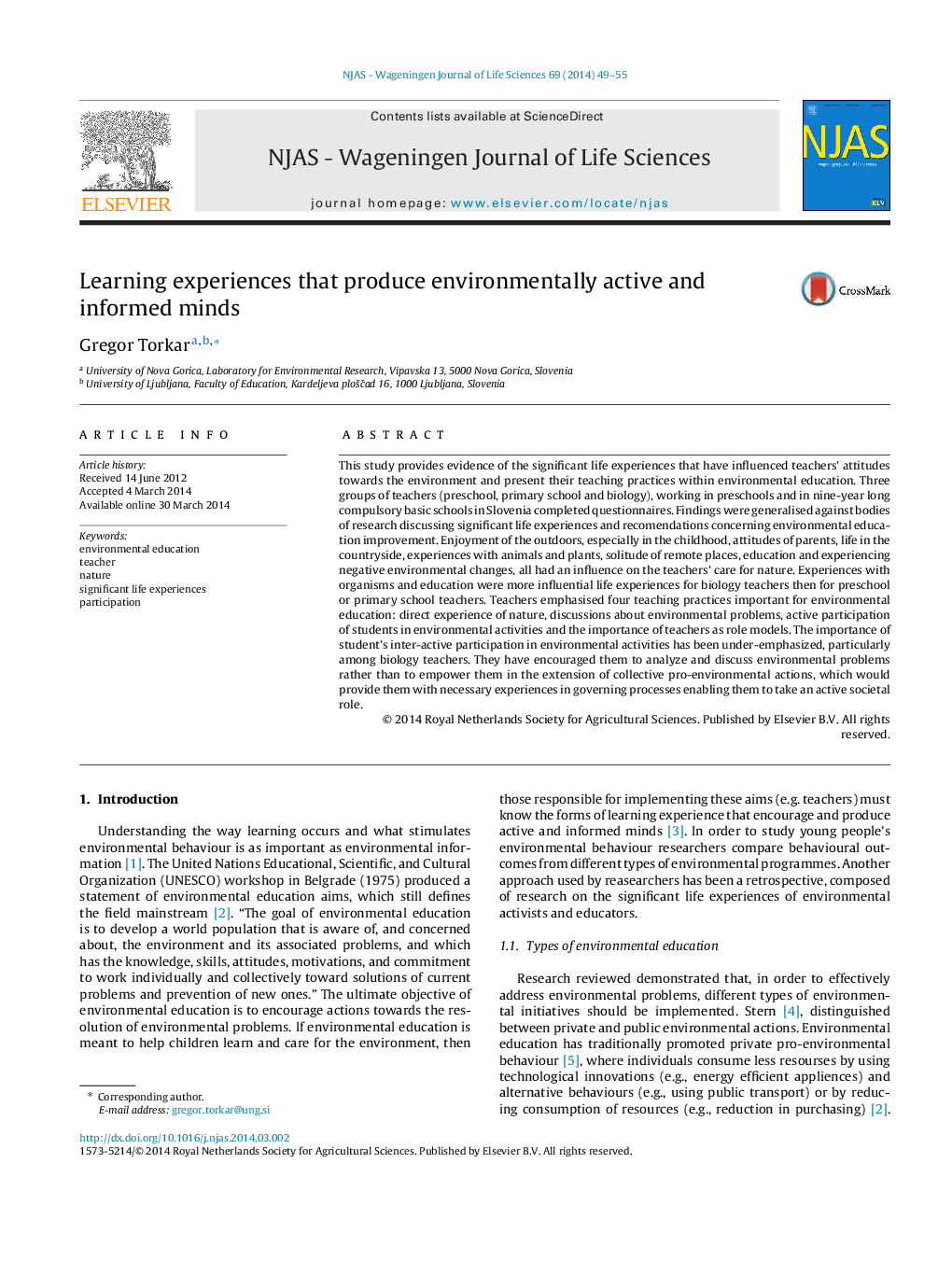| Article ID | Journal | Published Year | Pages | File Type |
|---|---|---|---|---|
| 4501274 | NJAS - Wageningen Journal of Life Sciences | 2014 | 7 Pages |
•We examine significant life experiences that influenced Slovene teachers’ care for nature.•We examine teachers views on the development of environmental education.•Outdoor experiences in childhood and parents are the most significan life experiences for teachers.•Environmental education based on direct experience of nature is the most commonly mentioned teaching strategy.
This study provides evidence of the significant life experiences that have influenced teachers’ attitudes towards the environment and present their teaching practices within environmental education. Three groups of teachers (preschool, primary school and biology), working in preschools and in nine-year long compulsory basic schools in Slovenia completed questionnaires. Findings were generalised against bodies of research discussing significant life experiences and recomendations concerning environmental education improvement. Enjoyment of the outdoors, especially in the childhood, attitudes of parents, life in the countryside, experiences with animals and plants, solitude of remote places, education and experiencing negative environmental changes, all had an influence on the teachers’ care for nature. Experiences with organisms and education were more influential life experiences for biology teachers then for preschool or primary school teachers. Teachers emphasised four teaching practices important for environmental education: direct experience of nature, discussions about environmental problems, active participation of students in environmental activities and the importance of teachers as role models. The importance of student's inter-active participation in environmental activities has been under-emphasized, particularly among biology teachers. They have encouraged them to analyze and discuss environmental problems rather than to empower them in the extension of collective pro-environmental actions, which would provide them with necessary experiences in governing processes enabling them to take an active societal role.
